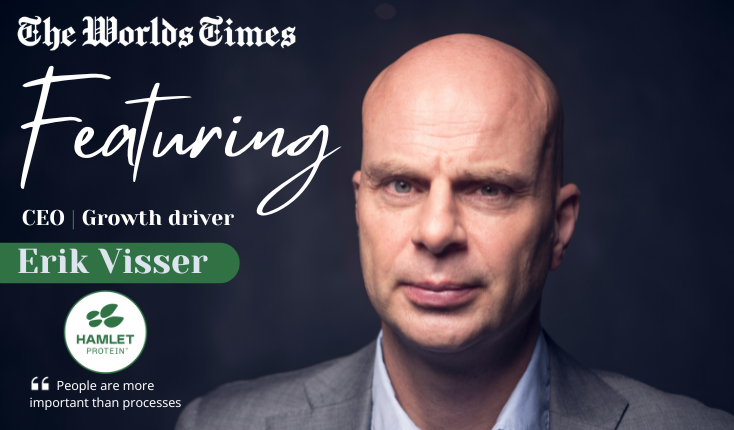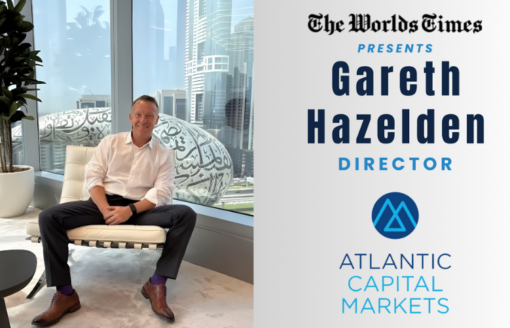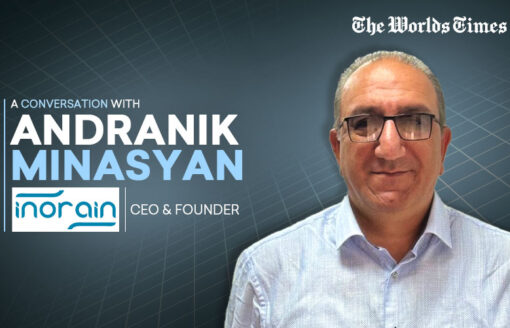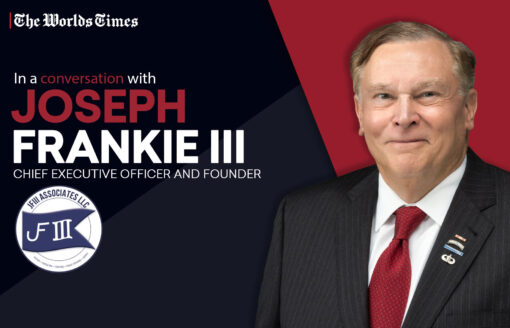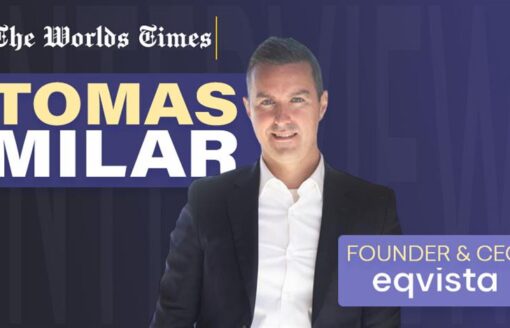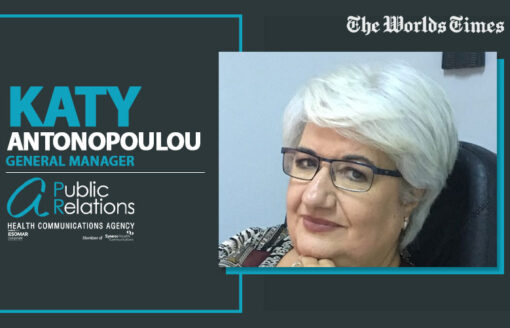Erik Visser Interview
This interview with the CEO of Hamlet Protein provides insights into his leadership philosophy, the company’s sustainable innovations, and strategies for global expansion. With over two decades in agribusiness, Erik Visser emphasizes the importance of empowering teams, overcoming challenges through adaptability, and leveraging the “multiplier effect” to accelerate progress. The discussion highlights Hamlet Protein’s focus on creating environmentally friendly, high-quality soy-based protein solutions for young animal nutrition and addressing global market demands. It also explores opportunities in emerging markets and offers valuable advice for aspiring leaders navigating rapidly evolving industries.
Background and Vision
We started the interview by asking, “Explain your background and your company in detail.”
Erik Visser replied, “I come from a strong background in global agribusiness, having worked in leadership roles across multiple geographies and sectors within the animal nutrition and feed industry. My journey spans over two decades, during which I’ve cultivated a deep understanding of the challenges and opportunities in this industry.
Currently, I serve as the CEO of Hamlet Protein, a leading global company specializing in soy-based protein solutions for young animal nutrition. Our products are designed to meet the specific needs of young animals like piglets, calves, and chicks, promoting healthy growth and reducing the need for antibiotics. With production facilities in Denmark and the U.S., we cater to customers worldwide, offering innovative solutions that not only support animal health but also address environmental sustainability.
Hamlet Protein’s mission revolves around creating high-quality, highly digestible feed solutions that contribute to healthier animals, efficient production, and reduced environmental impact. This aligns with my personal vision of balancing business growth with responsibility toward the planet and the communities we serve.”
Leadership Style
The Worlds Times: You emphasize the importance of people over processes and being a “player-coach.” How do you balance leading from the front with delegating responsibilities to empower your team?
Erik Visser replied, “For me, leadership is about setting the tone and creating an environment where people feel inspired to perform at their best. Being a “player-coach” means being actively involved when necessary, while giving my team the autonomy to own their responsibilities.
I achieve this balance by focusing on three core principles:
- Clarity of Vision: I ensure my team understands our strategic goals and how their roles contribute to our success. This clarity enables them to take ownership confidently.
- Empowerment: I trust my team to make decisions and encourage them to experiment and learn. I only step in when they need guidance or when critical decisions require my involvement.
- Active Participation: While I delegate effectively, I also stay accessible and informed, so I can provide support, remove roadblocks, or lead by example during challenging situations.
Ultimately, I believe that an empowering person leads to better outcomes, and my role is to nurture their potential while keeping us aligned on our goals.”
Turning Challenges into Opportunities
The Worlds Times: You’ve mentioned, “No is the beginning of Yes.” Can you share a specific instance where overcoming a major setback shaped your leadership or business strategies?
Erik Visser replied, “One of the most memorable instances was during my early days at Hamlet Protein. We were pursuing a partnership with a key costumer in a new market, but our initial proposal was rejected due to pricing concerns and doubts about our product’s competitive advantage.
Instead of walking away, we used this rejection as a learning opportunity. We engaged in deeper conversations with the costumer to understand their challenges and needs. This led us to adjust our pricing structure, enhance our value proposition, clarify the return on investment, and customize our approach to address their specific market dynamics.
Eventually, we turned the “no” into a “yes,” securing an enduring partnership that not only opened the market for us but also became a model for how we approach similar challenges elsewhere. This experience reinforced my belief that rejection is often an invitation to refine and innovate, not the end of the conversation.”
The Multiplier Effect in Action
The Worlds Times: The concept of the “multiplier effect” is central to your decision-making. Can you provide an example of a decision you made that significantly accelerated Hamlet Protein’s operations or impacted your team’s performance?
Erik Visser replied, “The multiplier effect concerns enabling others by clearing or avoiding blockages in business operations that will slow you down, decrease productivity, and waste time and money. It is about spending your time on moving forward with items that are holding others back.
If I can do a task that allows four or five people to move forward, these people can have a similar effect on four or five others (if not more) – and on it goes. It is exponential. When choosing how to spend your time, spend it moving forward on items that are holding other people back.
By prioritizing decisions or tasks that help your employees or teams carry on with their work, you will accelerate your organization’s forward speed.
But the multiplier effect is also about empathy. It is frustrating when you cannot do your job – especially if it is because you are waiting for someone else to make a decision first.
Sometimes, these decisions are simple and easy – answering an email, for instance. Other times, they will be complex or time-consuming – hiring staff, setting budgets, developing strategy, visiting clients.
By using the multiplier effect to guide your decision-making process, you will reduce bottlenecks, increase productivity and efficiency – and better pave the road for future success.”
Sustainability Initiatives
The Worlds Times: Sustainability is a major focus in the animal feed industry. How is Hamlet Protein addressing environmental challenges while balancing the economic demands of global markets?
Erik Visser replied, “Sustainability is a core pillar of Hamlet Protein’s strategy , and we address environmental challenges through a combination of innovation, efficiency, and collaboration. Our soy-based protein products are designed to drive efficiency animal nutrition by being highly digestible, which not only promotes healthier animals but also minimizes the environmental footprint of farming.
Additionally, we have optimized our production processes to reduce energy and water consumption and lower emissions. We redirect excess heat from our production in Denmark to warm more than 3,000 homes in our community. Balancing these sustainable practices with economic demands requires educating our customers about the long-term benefits of sustainability, not just for the planet but also for their bottom line. By continuously investing in research and development, we ensure that our solutions remain competitive while addressing the pressing need for environmental responsibility in global markets.”
Opportunities & Threats in Emerging Markets
The Worlds Times: With your experience across diverse geographies, what do you see as the biggest opportunities and threats for the animal feed industry in emerging markets like South America and Asia?
Erik Visser replied, “Emerging markets like South America and Asia present immense opportunities due to their growing populations and increasing demand for high-quality animal protein. However, they also come with unique challenges.
Opportunities:
- Rising Protein Consumption: The expanding middle class in these regions is driving demand for meat and dairy products, creating opportunities for high-quality feed solutions.
- Focus on Efficiency: Producers in these markets are seeking ways to optimize production and reduce costs, which aligns with our expertise in efficient, sustainable feed solutions.
- Technological Adoption: Increasing openness to technology adoption in farming practices offers a chance to introduce innovative feed products and solutions.
Threats:
- Regulatory Complexities: Diverse regulations across countries can complicate market entry and compliance.
- Infrastructure Gaps: Limited logistics and storage infrastructure in some areas can pose challenges to distribution.
- Economic Volatility: Fluctuating currency values and market instability can impact pricing and demand.
An important element of creating a winning strategy is sharing knowledge. With our technical insights on animal rearing and nutrition, and supported by local resources, we can help producers in emerging markets to increase their productivity. Through a detailed understanding of all market dynamics, we tailor our strategies to capitalize on opportunities while mitigating risks.
Global Expansion with Local Focus
The Worlds Times: As the CEO of Hamlet Protein, how are you steering the company to expand its global footprint while maintaining a personalized approach to customers and stakeholders?
Erik Visser replied, “Expanding Hamlet Protein’s global presence while maintaining a personalized touch requires a careful blend of strategic scaling and localized engagement. We focus on tailoring our solutions to meet the specific needs of different markets. For instance, our production facilities in Denmark and the U.S allow us to serve diverse regional demands effectively while ensuring the highest quality standards.
Maintaining strong relationships with our customers is equally important. We prioritize direct engagement through frequent customer visits, regular feedback loops, and tailored support services. This approach helps us remain connected to their evolving needs. Additionally, leveraging digital tools enables us to stay agile and responsive as we grow, ensuring that each customer continues to feel valued despite our expanding footprint. By combining global scalability with a local focus, we are able to grow sustainably while building lasting relationships with stakeholders.”
Advice for Aspiring Leaders
Lastly we asked, “Based on your journey, what advice would you give to young professionals aspiring to lead in industries like animal feed or other sectors undergoing rapid change?”
“My advice to young professionals is to embrace change and remain adaptable. Industries like animal feed are evolving rapidly due to advancements in technology, shifts in consumer demands, and the growing importance of sustainability. To succeed, it’s essential to stay curious and committed to lifelong learning. Build a solid foundation of knowledge, but don’t be afraid to explore new ideas and approaches.
Leadership is as much about people as it is about strategy. Invest time in building relationships and empowering those around you. Success is rarely achieved in isolation, so prioritize collaboration and communication. Additionally, resilience is key—view challenges as opportunities to grow rather than obstacles to fear. Above all, remain passionate about your work. When you are genuinely invested in what you do, it not only drives your own success but also inspires others to follow your lead.” Erik Visser Concluded
Connect Erik Visser on LinkedIn
Visit Hamlet Protein to learn more about the company
Also Read:
Insights from Jerry Acuff on Building Trust
Excellence in Law & Innovation with Mauricio Junquera Fernández
The Journey and Vision behind The IMLS with Daniel Nussbaum
